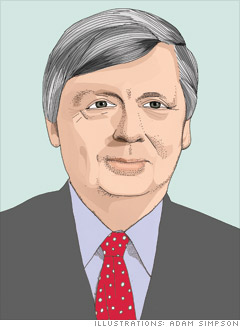Ask the experts
Money sent your questions to leading financial experts. Here's their best advice.

Brian Rogers
By "new normal," you're no doubt referring to the uncertainties in the economy that have led to shakier markets and the expectation of more modest returns. Well, we can't blame you for questioning the merits of buying and holding stocks at a time like this. But the problem, says T. Rowe Price chairman Brian Rogers, is that the alternatives aren't any better.
For instance, if you try to boost your returns in a roller-coaster market by jumping in and out of stocks, good luck: Academic research shows returns decline as investors' trading frequency climbs. If you want to know why, just look at recent experience. In 2007 individual investors poured $91 billion into stock funds just in time to see equities lose more than a third of their value. Then in 2008 that group yanked $234 billion out of funds just before the S&P rose nearly 70% between March and December of 2009.
Okay, what about going all to cash? Well, if you had done that, you would have made about 2.6% a year in the 2000s, which is better than buying and holding all stocks. But if you had bought and held a diversified 60% stock/40% bond portfolio -- and kept adding money monthly, rebalancing annually -- you'd have earned 4.3% a year during that same time.
What about handing your money to a professional money manager who's allowed to bet on or against stocks? In theory, this strategy could make you money no matter what the market does. Sounds good on paper. But so-called long-short mutual funds, which employ this very strategy, returned no more than cash did between 2000 and 2009.
"I don't think there is a new Holy Grail," concludes Rogers. He says buy and hold is still the way to go, as long as you stay diversified and stick with attractively priced shares of strong companies with solid finances and good management. --George Mannes
NEXT: The market
Last updated June 16 2010: 12:30 PM ET

